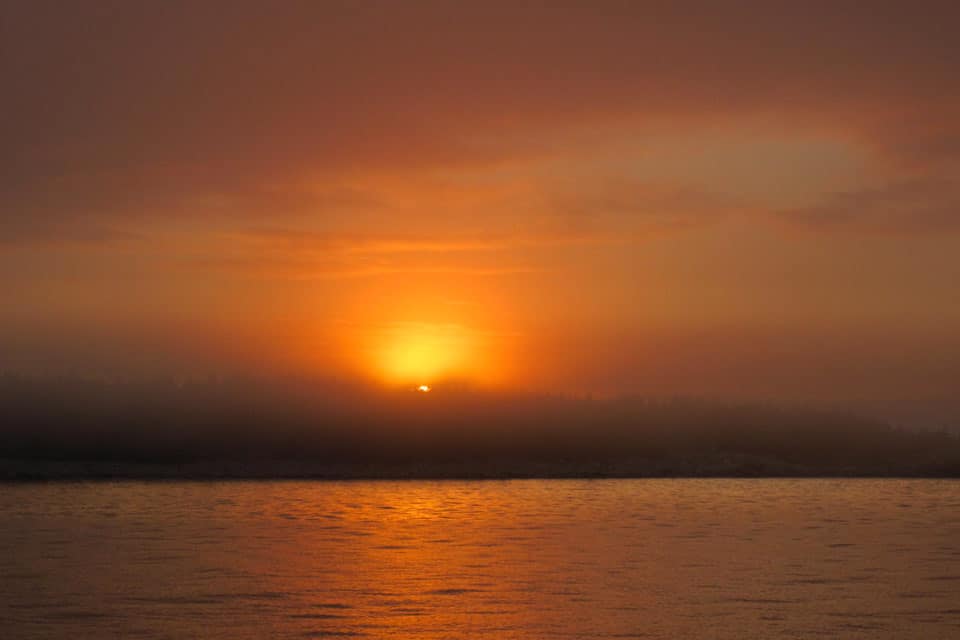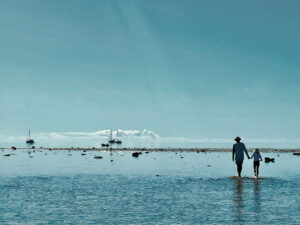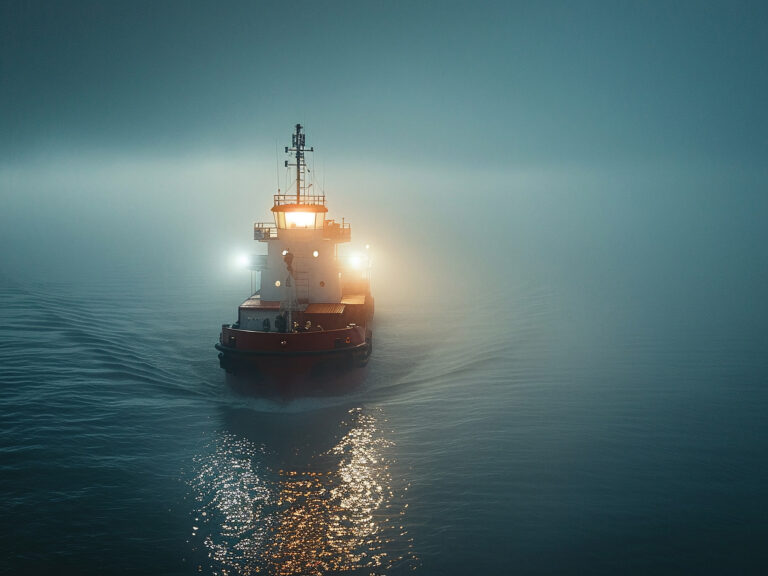
Just after dawn today, I opened my eyes to something I haven’t seen first thing in the morning on Osprey in quite a while: sunlight. It buttered the woodwork overhead in our cabin, flickering and darting like a bird made of light and shadow. This vision was followed by the clear tremolo of a loon nearby. We were back in Maine.
I know most people don’t necessarily associate sailing in Maine in the summer with dappled sunlight. But that’s just because they haven’t sailed on the coast of Nova Scotia. If the fog in Maine can be likened to Carl Sandburg’s “little cat feet,” then the fog in Nova Scotia is more like a Zamboni. It waits there, a heavy presence just beyond the rink of play, engine quietly rumbling, and then it moves in and obliterates all individual evidence of any boat’s presence on the water.
To the uninitiated, as we were, this can be quite intimidating. Our family of four would sail Osprey, our 45-foot steel cutter, out of a cove or a port in the morning while enjoying decent visibility or even sunshine, and within a mile or sometimes only yards of the shoreline, the fog would swallow us whole. We’d travel within this fleecy world for hours, depending entirely on radar and a chart plotter, and a compass and our ears when we were within hearing range of a buoy or lighthouse. “How on earth,” I mused to my husband, Johnny, “did men sail on ships in this stuff for ages without electronics and GPS?”
“They wrecked,” he said succinctly. “A lot.”
Sailing in Nova Scotia’s fog, I sometimes felt like the character William Hurt plays in that movie Altered States, when he uses a sensory-deprivation chamber like a fistful of psychedelic mushrooms to enter the weirder corners of his psyche. We’d go for hours, seeing nothing but variations of gray and the magenta blotches on the chart plotter, assurance from the radar that there was, indeed, another boat or a headland or a buoy or a something just a quarter of a mile away. Then, when we’d make our approaches inland, we’d emerge from the edge of that world like a diver parting the seam between air and water. Instantly, what wasn’t there now was. So startling was this transition that you began to feel as though “out there” was a different planet entirely and that you’d spent the better part of the day in some sort of parallel universe. Out there, we’d wear hats, jackets, jeans, and sea boots, and the sense of the looming North Atlantic all around us defied season and time. As soon as we’d parted the wall and re-entered summer, we’d shed our clothes all over the cockpit and squint into the sun like moles emerging from some tunneled burrow, relieved to know that the world we’d left still existed.
All of this may sound pretty unappealing, but here’s the thing: I grew to like it. Like the vagaries of light, the fog changed all the time. We had sunny fog and cloudy fog. We had lightning fog and moonlight fog. One day we had fog, rain, and sun all at the same time. We had windy fog and greasy-calm fog. We saw fog so thick it poured through the cockpit in visible misty rivers and fog so delicate it filigreed spider webs and butterflies’ wings. The fog made the ordinary quite extraordinary in a way the sun never could. It lent mystery to what otherwise would be obvious. In some of the more remote island anchorages we visited, it seemed to be the keeper of secrets and stories, weaving among the fir trees and shrouding the bright-green, blueberry-studded hillsides. The fog made Nova Scotia feel more remote and otherworldly than any other place we’ve been.
I can’t say I’d want to sail within it forever. But like the night, it made a gift of a sunlit morning, and this is no small offering.








